- The University
- Studying
-
Research
- Profile
- Infrastructure
- Cooperations
- Services
-
Career
- Med Uni Graz as an Employer
- Educational Opportunities
- Work Environment
- Job openings
-
Diagnostics
- Patients
- Referring physicians
-
Health Topics
- Health Infrastructure
Research units: Sustainable health research


Evidence-Based Medicine Review Center
Evidence-based medicine (EbM) aims to ensure that medical decisions are based on the best scientific evidence. At the same time, medical experience and patients' wishes should be taken into account. The research team would like to use its experience in EbM to help ensure that scientific results of the highest possible quality are achieved in the various projects. Evidence-based medicine is important because it provides doctors and patients with good information to help them make good decisions. This enables them to avoid unnecessary treatments.
Head of the research unit: Klaus Jeitler
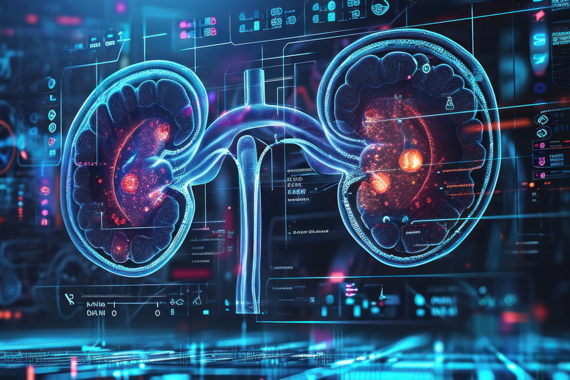
Transplantation Research
The research unit deals with organs that are intended for transplantation. These organs are exposed to various challenges that can have a negative impact on the survival of both the organs themselves and the patients. Our research work aims to make organs "fit" for transplantation in order to provide as many patients on transplant waiting lists as possible with a suitable organ.
Head of the research unit: Philipp Stiegler
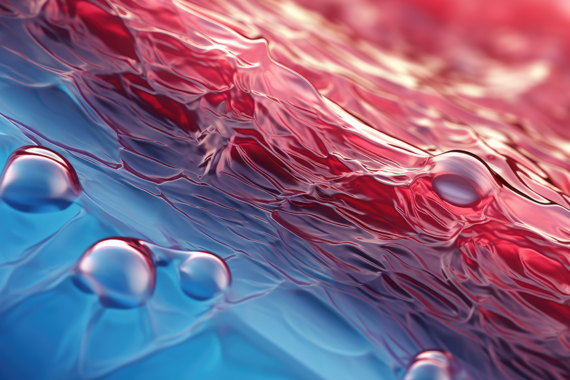
Tissue Regeneration, Repair and Reconstruction
The research focus of the RU is on the development and improvement of existing surgical and conservative therapies in the field of skin regeneration. The RU mainly deals with topics related to wound healing and wound healing disorders. A special focus will be placed on the use of fat stem cells, but biomaterials will also be examined with regard to their biocompatibility and cell-matrix interactions. When developing new methods, particular attention should be paid to the practical feasibility in the clinic; both in terms of what is technically feasible and what is ethically justifiable.
Head of the research unit: Petra Kotzbeck
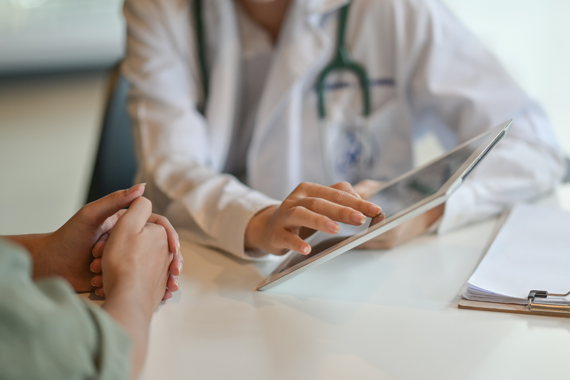
Safety and Sustainability in Healthcare
Our team conducts research in the areas of "patient safety" and "sustainable healthcare" and supports their implementation in everyday medical practice. In close cooperation with Graz University Hospital, we work together on relevant topics in the field of healthcare. The aim is to deal with the development of aspects relevant to patient safety, the implementation of methods, tools or devices and their sustainability and thus make a significant contribution to patient safety and sustainable healthcare.
Head of the research unit: Lars Peter Kamolz
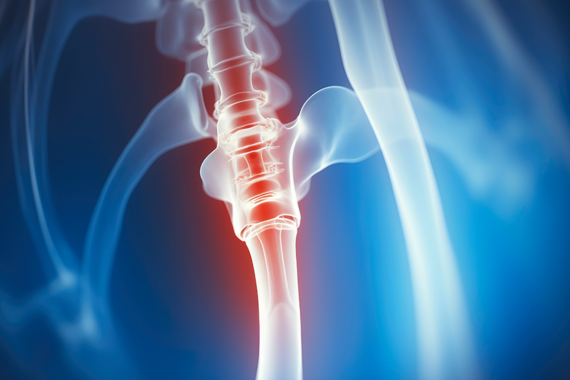
Quality Measurement in Arthroplasty
Vision und mission statement: Cost-effective high-end medicine and research, evaluated using patient-specific endpoints and objective scientific parameters in the field of prevention, conservative and surgical therapy of the musculoskeletal system with a special focus on total joint replacement.
Head of the research unit: Patrick Sadoghi

Responsible Aesthetics – Safety, Evidence & Sustainability
The research group "Responsible Aesthetics" at the Medical University of Graz is dedicated to promoting evidence-based practices, sustainable procedures, and safety standards in aesthetic medicine and plastic surgery. In close collaboration with regional, national, and international partners, we conduct research to inform, enhance, and advocate for responsible practices in aesthetic medicine. Our aim is to become a leading authority within this thematic domain and make a substantial contribution to societal engagement with it.
Head of the research unit: Sebastian Nischwitz

Epidemiology and Outcomes in Critical Illness
The treatment of seriously ill and seriously injured people is a complex interplay of many processes. Countless factors influence the outcome of this treatment. In addition, this treatment takes place in a field of tension between medical, ethical, social and economic requirements. It is therefore difficult to represent and compare medical quality using measurable parameters. As researchers into the quality of outcomes, we therefore develop and use methods to objectively present and critically examine this quality.
Head of the research unit: Paul Zajic

Genetic Epidemiology
Genetic epidemiology plays a central role in precision medicine. She investigates the connection between variability in the genome and diseases and identifies high impact targets for therapy and prevention. Our focus is on aging, which explains 90% of mortality in the Western world. Aging is a plastic and variable process in humans. If we can slow down the aging process, the result would be a long and healthy life.
Head of the research unit: Helena Schmidt
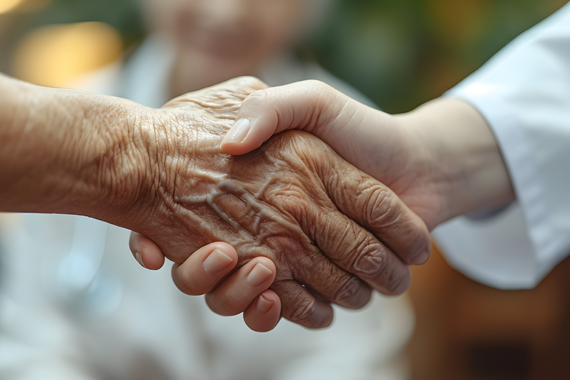
Services for old age and lifelong health
International and interprofessional research and education of future generations of health care professionals related to ageing and integrated care in geriatric medicine builds our success.
Our academic work is based upon delivery of person-centered and integrated care for older and multimorbide citizens, answering needs with sustainable solutions and concepts.
Head of the research unit: Regina Roller-Wirnsberger
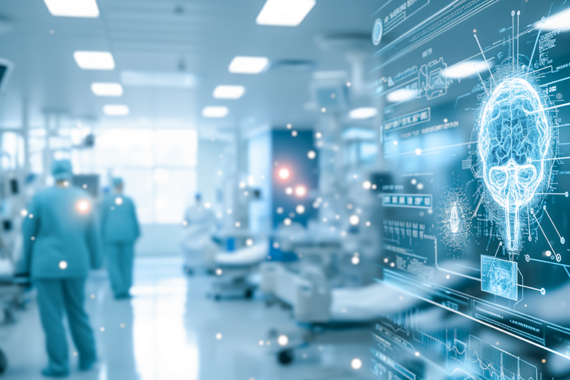
Digital Surgery
The Research Unit aims to facilitate the translational adoption of digital technologies in surgery and to expand its reach for clinical application. Proactive participation for building tomorrow’s healthcare with digital technologies to promote surgical care, research and development.
Head of the research unit: David Benjamin Lumenta

Laryngeal Tracheal Tissue Engineering Graz (LTTEG)
While most investigations of the voice can only record it indirectly (voice recording, endoscopy), we deal with physiology and pathophysiology on a cellular and molecular level. The phonomimetic bioreactor we have developed allows us to simulate the vibration of the vocal folds in a test tube and thus to investigate the effects of vibration on the different cell types. We are particularly interested in questions at the intersection of biology and mechanics.
Head of the research unit: Markus Gugatschka
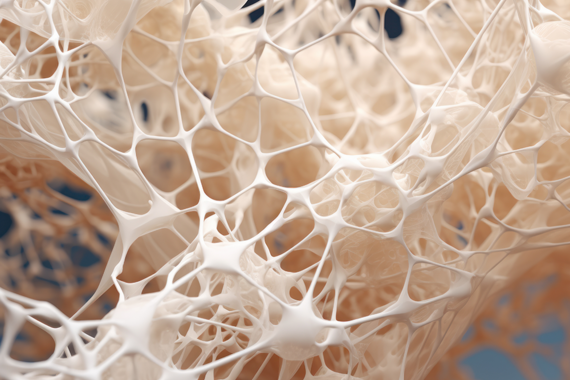
Musculo-skeletal Research Unit for Biomaterials
The Musculoskeletal Research Unit for Biomaterials aims to develop new, healthier materials - especially for children - that functionally support the bone healing during bone fracture treatment in orthopedics and traumatology and then be absorbed. With this overall goal, the patient's demand for the most effective treatment is achievable and feasible. In order to work translationally, a strong network between clinical and basic research is required (from bench-to-bedside and vice versa).
Head of the research unit: Nicole Sommer
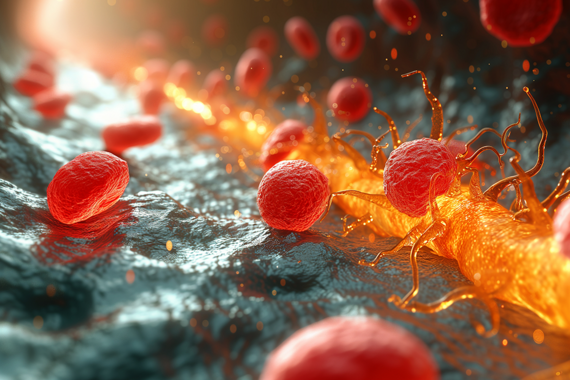
Humane Erythropoese
We span an arc from basic research in stem cell biology to translational research in the field of transfusion medicine. The aim is to gain new insights into the molecular regulation of human haematopoiesis. The focus is on the production of red blood cells (erythrocytes) from human stem cells using biotechnological processes. Both CD34+ hematopoietic stem cells from umbilical cord blood and so-called induced pluripotent stem cells (reprogrammed skin or blood cells) serve as starting material.
Head of the research unit: Isabel Dorn
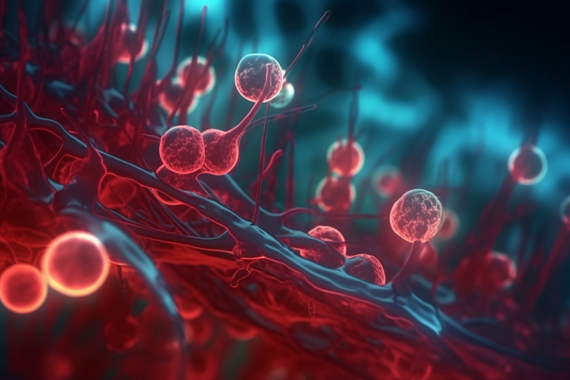
Clinical-serological immunohematology and blood group genetics
The research unit is concerned with the identification and characterisation of new blood group variants and the scientific processing of discrepant blood group findings. Classical family studies and special immunohaematological diagnostics, on a serological and molecular level, or by means of in vitro experiments are used.
Head of the research unit: Thomas Wagner

Photodermatology
The molecular mechanisms of action of light therapy for skin diseases are investigated using biomedical models and cell culture in conjunction with clinical studies - from bedside to bench and back. By understanding the underlying mechanisms we aim to create the basis for new and targeted therapies against skin diseases with greater effectiveness and sustainability - and an improved safety profile. Our research is inspired by clinical hypotheses, which are the core of translational studies.
Head of the research unit: Peter Wolf
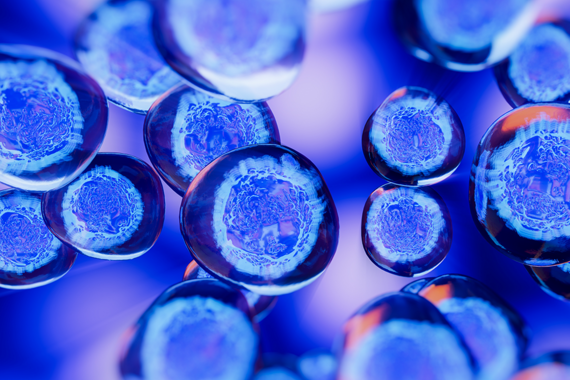
Anal Incontinence (due to Obstetrical and Gynecological Reasons)
Obstetric trauma is thought to be the most common cause of anal incontinence with the external anal sphincter being disrupted by a third degree tear after vaginal delivery.
Anal incontinence often devastets patients' lives and treatment options are limited. Conservative measures can be ineffective. Surgical interventions can be associated with complications and limited success. We have been following women who have severe obstetric perineal trauma since 1993 and we were looking for an anal incontinence treatment that was less invasive and more successful.
Head of the research unit: Andrea Frudinger
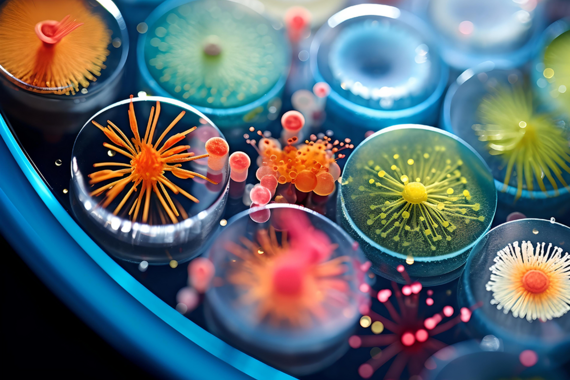
Environmental Hygiene
Research focuses on bioaerosols, water hygiene and microecology. High concentrations of microorganisms, dust and chemical substances can lead to health problems in the indoor air (waste management, livestock housing) and in the outdoor air. Other topics are the detection of biological and chemical components as well as of human-associated antibiotic resistance in ground and surface waters and their potential impact on the environment.
Head of the research unit: Doris Haas

Sinonasal Health Research
We are committed to advancing the diagnosis, understanding of underlying mechanisms, and therapeutic approaches for chronic rhinosinusitis (CRS). While our primary focus is on primary CRS, we also address secondary forms, including those associated with immunological, tumorous, and infectious causes. At our Rhinology outpatient clinic, clinical research is integrated into patient care, ensuring a direct link between scientific discovery and practical application. Our goal is to improve long-term CRS management through personalized treatment models and novel diagnostic standards.
Head of the research unit: Alexandros Andrianakis

Geschlecht und Gender in der Patho-Physiologie der Erkrankungen
Erkrankungen des Herzens, der Lunge sowie der Gehirnversorgung sind die häufigsten Todesursachen weltweit. Die zukünftig voraussichtliche Steigerung von ungesunder Ernährung, Bewegungsmangel, Tabakkonsum, Luftverschmutzung senkt die Überlebensrate weiter. Die Forschungseinheit untersucht, wie Geschlecht und Gender die Entstehung dieser Erkrankungen beeinflusst. Mit modernsten Ansätzen in experimenteller und klinischer Forschung arbeiten wir daran, die Medizin für Männer und Frauen zu personalisieren, um die Sterblichkeit bei Herz-Kreislauf-Erkrankung langfristig zu reduzieren.
Leiterin der Forschungseinheit: Elena Osto

Cluster lung research
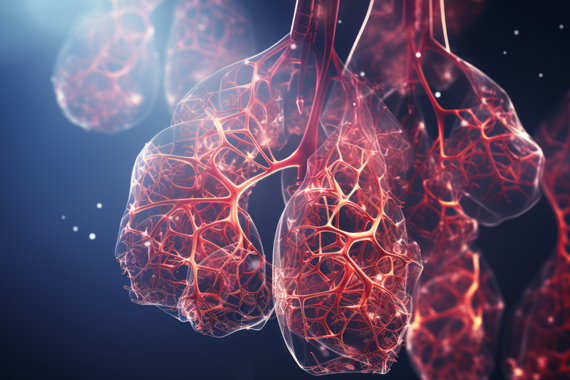
Cell signaling pathways in inflammatory lung diseases
Our research activities focus on inflammatory processes that contribute to the development of chronic lung diseases such as bronchial asthma and COPD. In the course of the diseases, inflammatory mediators are released, which recruit and activate immune cells. However, the involved signaling pathways are not yet fully understood. In order to define new approaches for diagnosis and therapy we investigate these activation processes by linking findings from isolated cell systems, disease models and patient samples.
Head of the research unit: Eva Böhm
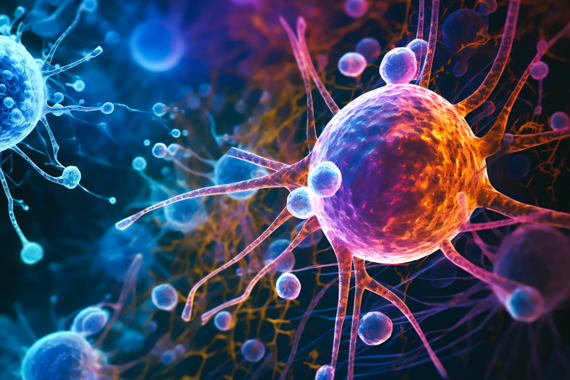
Immune cell interaction in chronic lung disease
The immune system plays and important role in the development and progression of chronic lung diseases, leading to both parenchymal and vascular remodelling. Our research unit focuses on understanding the deeper dynamics of these immune cells by going beyond individual populations and focusing on comprehensive inflammatory profiles. By applying an interdisciplinary translational approach we aim to unravel the interaction and interdependence of these immune cells and determine their contribution to disease pathogenesis.
Head of the research unit: Leigh Marsh
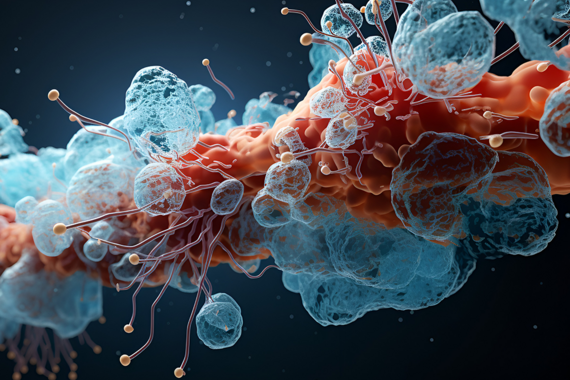
Heterogeneity and plasticity of pulmonary smooth muscle cells
This research unit is working to understand the cellular mechanisms of pulmonary vascular remodeling, in particular, the heterogeneity of smooth muscle cells. Using novel technologies such as single cell transcriptomics and three-dimensional imaging, its goal is to answer the role of smooth muscle cell plasticity in pulmonary diseases. It is also identifying crucial regulators of SMC fate as potential novel anti-remodeling therapies.
Head of the research unit: Slaven Crnkovic
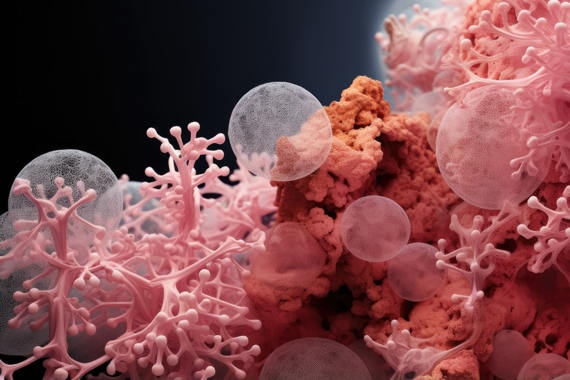
Translational membrane protein research in the lung and insights into disease
The membrane protein family of channels fulfils salient roles as versatile cellular sensors and effectors. Their pivotal role in the lung is highlighted by the discovery of several mutations leading to pulmonary diseases such as cystic fibrosis or pulmonary arterial hypertension. The Research Unit strives to elucidate the underlying mechanisms of pulmonary pathophysiologies and investigate their economic consequences for public health in an aging society.
Head of the research unit: Andrea Olschewski
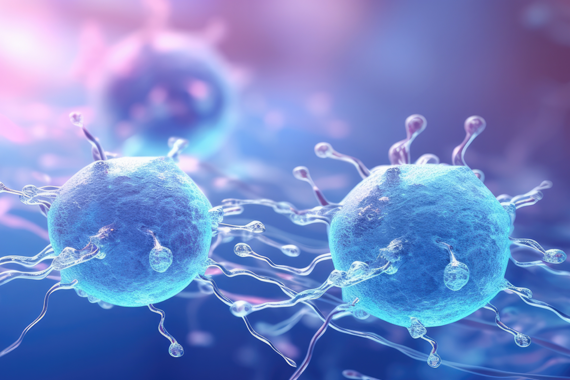
Mechanisms of chemoresistance in lung carcinoma
Lung cancer is one of the most frequent cancer types worldwide. The focus of the research unit is the investigation of different aspects of chemoresistance in lung carcinoma cells. Molecular mechanism of chemoresistance by using modern methods of molecular and cellular biology are investigated. Another focus of interest in this research unit are microRNA molecules. MicroRNAs regulate gene expression and thereby influence signaling pathways and mechanisms of resistance in tumor cells. The goal is to improve the treatment modality for lung carcinoma patients.
Head of the research unit: Andelko Hrzenjak
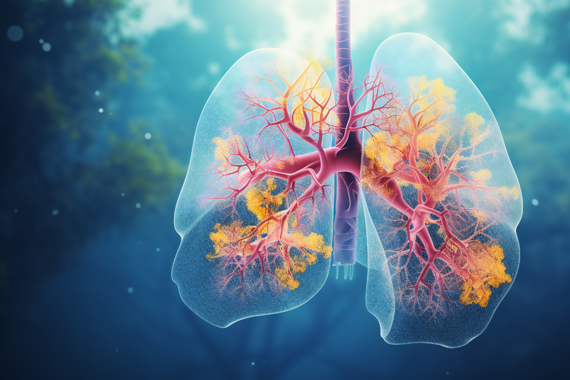
Extracellular matrix and cellular crosstalk in vascular chronic lung diseases
Chronic lung diseases (CLD) such as pulmonary fibrosis are often associated with vascular changes. The constant interaction between structural cells and extracellular matrix (ECM) proteins is integrative part of vessel and parenchymal cellular homeostasis, however, when disturbed can lead to cellular expansion and disease worsening. This RU aims to delineate the mechanism leading to disbalance in cellular homeostasis and thus CLD development.
Head of the research unit: Grazyna Kwapiszewska-Marsh
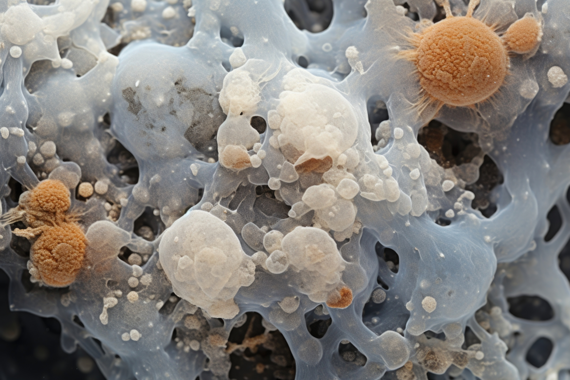
Metabolic and hormonal influence on fate of mesenchymal cells in Chrnic Lung Disease
Chronic lung diseases (CLD) are leading cause of mortality and their prevalence is expected to substantially increase in the coming decades. CLD are characterized by a remodeling of the lung tissue which ultimately leads to cardio-respiratory problems. Many different mesenchymal cells contribute to this remodeling and each of them contribute differently to disease development. We aim to investigate how systemic/local metabolic and hormonal changes influence mesenchymal cells behavior and function.
Head of the research unit: Valentina Biasin
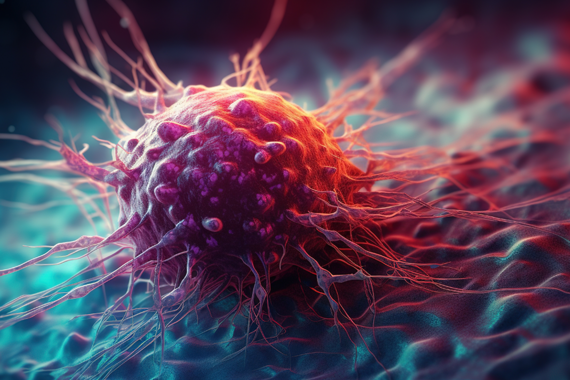
Lung Cancer Metabolism and Microenvironment
In solid cancers like lung cancer, cells face a poor nutrient supply due to an insufficient newly formed vasculature. The research unit “Lung Cancer Metabolism and Microenvironment”, led by Katharina Leithner, aims to study the metabolic rewiring of cancer cells and tumor immune cells under these harsh conditions. The researchers identified a novel metabolic pathway in lung cancer cells, that allows cancer cells to perform metabolism independent of glucose and aim to further shed light on this pathway.
Head of the research unit: Katharina Leithner
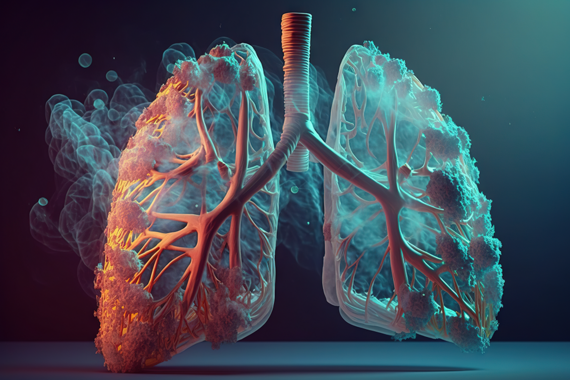
Pulmonary Hypertension
Our research unit focuses on clinical and translational research in the field of pulmonary hypertension (PH). Our main goals include the early diagnosis of PH with innovative tools, and the optimized management of patients with early PH and with PH associated with chronic lung diseases. Pulmonary exercise hemodynamics represents a special focus among our research projects. We initiated and developed several international collaborations including the PEX-NET Clinical Research Collaboration supported by the European Respiratory Society and international COPD and ILD collaborations.
Head of the research unit: Gabor Kovacs
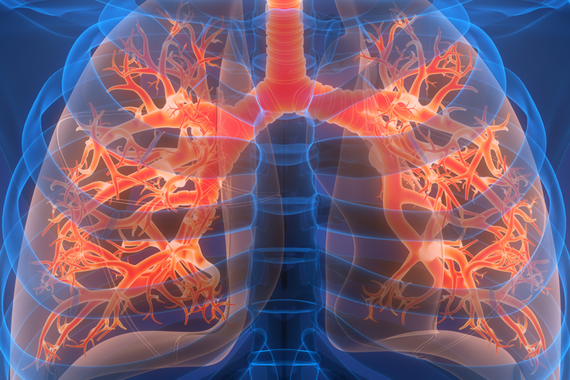
Metabolism of Lung Regeneration
The research unit “Metabolism of Lung Regeneration” explores molecular mechanisms that abrogate epithelial repair and regeneration in Chronic Obstructive Pulmonary Disease (COPD) and Idiopathic Pulmonary Fibrosis (IPF). COPD relentlessly proceeds to respiratory failure and premature mortality despite treatment, making it the fourth leading cause of death worldwide. IPF shows a mean survival of 3-5 years, and the two approved drugs, Pirfenidone and Nintedanib, only delay disease progression. Therefore, we aim to translate the gained knowledge into disease-modifying therapeutic concepts..
Head of the research unit: Paul Vesely


